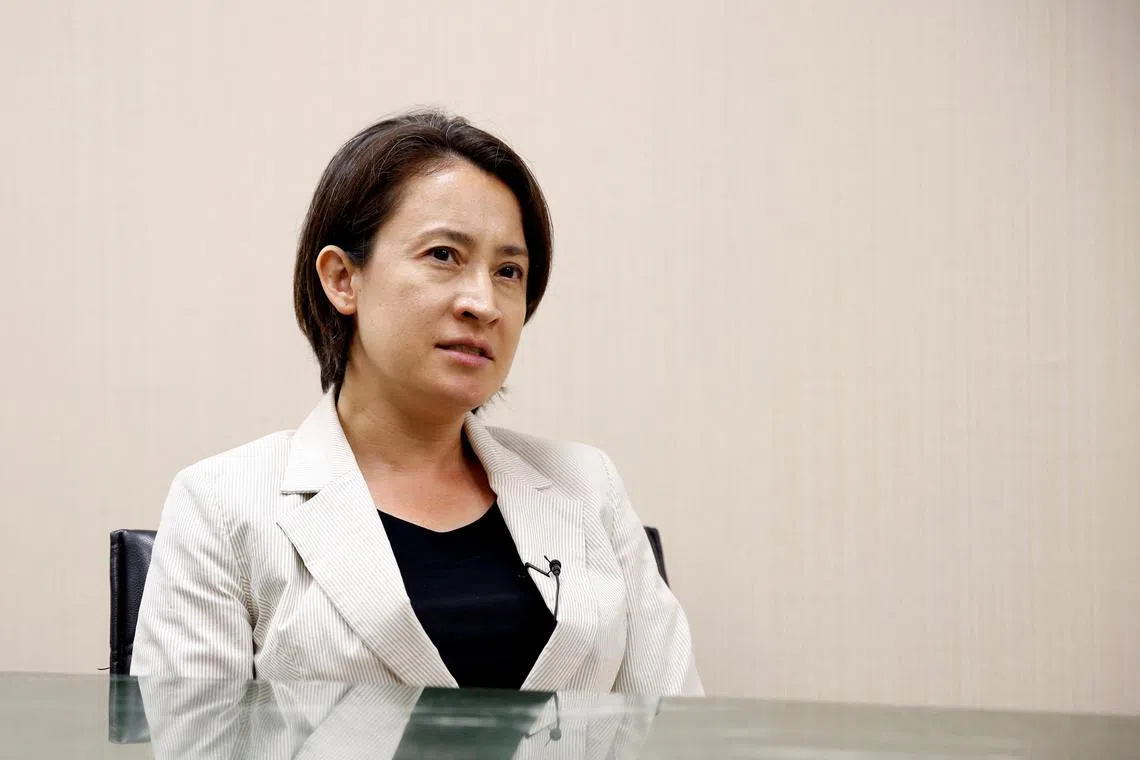China imposes further sanctions on Taiwan's US representative
Sign up now: Get insights on Asia's fast-moving developments

The sanctions prohibit investors and firms related to Ms Hsiao Bi-khim, Taiwan’s de facto ambassador to the US, from cooperating with mainland organisations and individuals.
PHOTO: REUTERS
BEIJING – China has imposed further sanctions on Ms Hsiao Bi-khim, Taiwan’s de facto ambassador to the United States, prohibiting her and family members from entering the mainland, Hong Kong and Macau, state media reported on Friday.
The sanctions, announced by China’s Taiwan Affairs Office, also prohibit investors and firms related to Ms Hsiao from cooperating with mainland organisations and individuals.
The curbs come after Taiwanese President Tsai Ing-wen’s meeting with US House Speaker Kevin McCarthy
“Wow, the PRC (People’s Republic of China) just sanctioned me again, for the second time,” Ms Hsiao posted on Twitter in response to the announcement.
China’s Foreign Ministry also announced steps against the Hudson Institute think-tank and the Ronald Reagan Presidential Library, as well as their heads, saying both institutions provided facilities and a platform for what it called Ms Tsai’s “separatist activities”.
Taiwan’s Foreign Ministry reacted angrily, saying China had no right to “butt in” when it came to Ms Tsai’s overseas trips, and that Beijing was “deceiving itself” if it thought the sanctions would have any effect.
“It not only deepens our people’s antipathy, but also exposes the irrational and absurd nature of the communist regime,” it said.
China regards Taiwan as a breakaway province to be reunified, by force if necessary. Taiwan’s government disputes China’s claim.
The Chinese Foreign Ministry said it has immediately restricted universities, institutions, and other organisations and individuals in China from engaging and cooperating with the Hudson Institute, the Reagan library and their leaders.
China has also banned the leaders from entering the country and frozen their properties in China, if any, it said.
Neither body immediately responded to a request for comment.
Chinese sanctions will have little practical impact as senior Taiwanese officials do not visit China, while Chinese courts do not have jurisdiction in Taiwan.
China imposed similar sanctions on the Prospect Foundation, which is headed by a former Taiwanese foreign minister, and the Council of Asian Liberals and Democrats, a multinational alliance that Taiwan’s ruling Democratic Progressive Party (DPP) co-founded in 1993.
The Taiwan Affairs Office accused the institutions of promoting the idea of “Taiwan independence” internationally.
Last August, after a visit to Taiwan by then US House Speaker Nancy Pelosi, Beijing imposed sanctions including an entry ban on seven Taiwanese officials and lawmakers,
Others on the August sanctions list included Taiwanese Foreign Minister Joseph Wu and National Security Council Secretary-General Wellington Koo, as well as politicians from the DPP.
DPP lawmaker Chao Tien-lin told reporters that the sanctions on Ms Hsiao were “absurd”.
“These will have no impact on her,” he said. REUTERS


